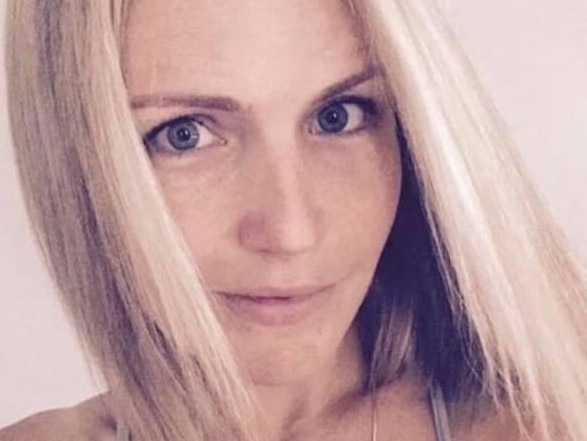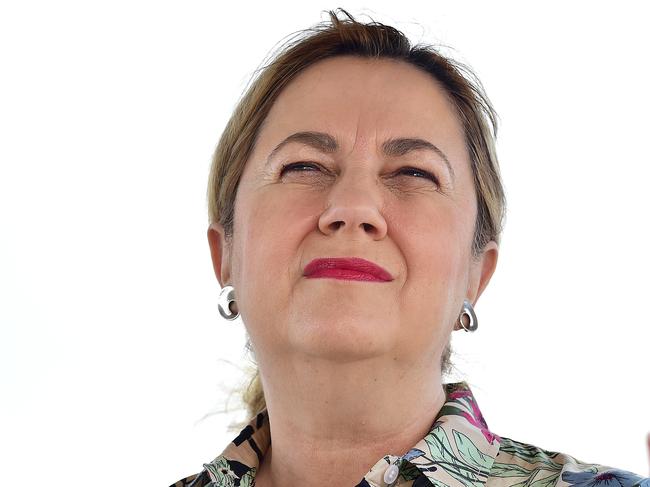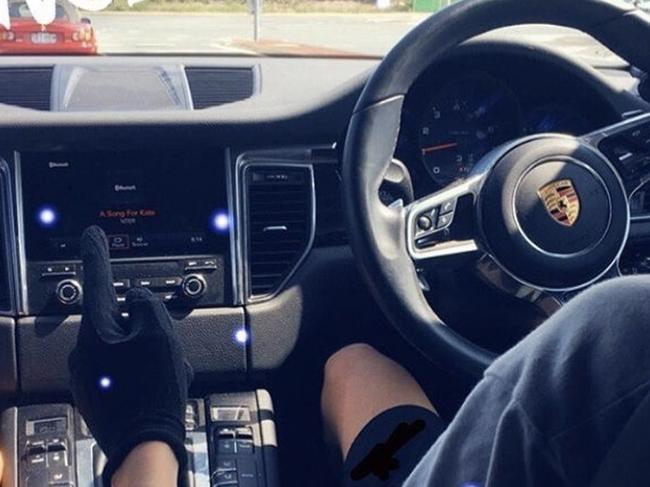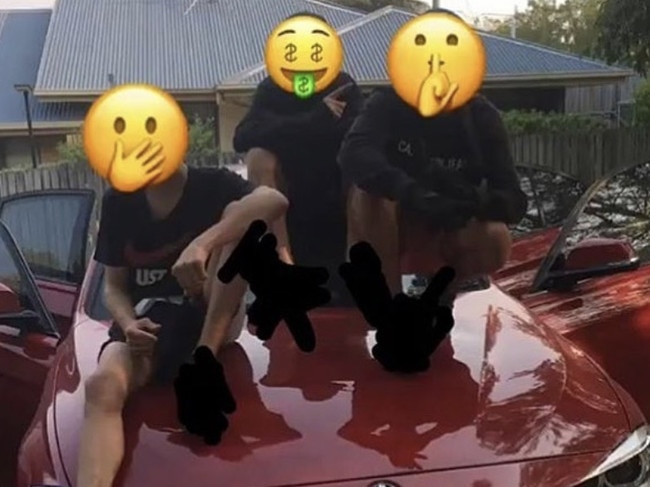‘Smarter not tougher’: Experts not convinced by Palaszczuk’s youth crime reforms
Youth offenders are spending longer behind bars and have limited access to programs to help them get better, with experts claiming youth crime could be reduced without harsher jail terms.
QLD Politics
Don't miss out on the headlines from QLD Politics. Followed categories will be added to My News.
Queensland’s youth offenders are spending longer behind bars and have little access to targeted programs meant to help them get better, with experts unconvinced the state government’s latest measures will help.
Only children found guilty of crimes get access to programs tailored to deal with issues including anger management and sexual offending, with detention workers and youth advocates warning those yet to be sentenced often fall through the gaps without any help.
This comes as dozens of peak bodies and academics issue an open letter to the state government urging authorities to get “smarter not tougher” on youth offending, saying crime could be reduced but not through imprisoning “our way to a safer community”.
The letter, published in The Courier-Mail today, called for “evidence-based solutions to youth crime that actually work” rather than “political pointscoring about who is the toughest on crime”.

Queenslanders have been shocked by a spate of high-profile youth crime incidents, including the stabbing death of Emma Lovell in a violent home invasion late last year.
The state government, in the aftermath of Ms Lovell’s murder, announced another suite of measures to tackle youth crime including increased sentences and “extreme high visibility” police patrols.
Premier Annastacia Palaszczuk, in Townsville on Friday, said the government didn’t want to see children behind bars – particularly in police watch houses – for long extended periods but “community safety was paramount”.
Youths were spending an average of 43 days on remand in 2021/22, according to the Childrens Court of Queensland annual report, up from 36 days the year before, despite the amount of time taken to get to the end of the court process down 20 per cent (from 102 days to 84 days).
And the increase in time spent behind bars meant nearly half of all kids eventually handed prison time are let out straightaway.
A snapshot of the state’s child detainees on Friday revealed 91 per cent (267) of the 291 kids were on remand.

A Department of Child Safety and Youth Justice spokeswoman said children in detention centres were offered education and programs including mental health services and drug rehab.
Only children found guilty of a particular crime have access to programs to deal with issues like sexual offending, anger management, and driving attitudes.
But detention centre and youth worker sources warned access to programs were dependent on a number of factors, including staffing resources.
A Cleveland Youth Detention Centre source said kids were “continually falling through the gaps”.
“Kids can be on remand for months and then be sentenced with immediate release and go through no programs,” they said.
Productivity Commission data released this week revealed Queensland had the highest rate of youth reoffending, with 56.8 per cent back in court within a year as of 2019/2020.
Opposition police spokesman Dale Last said programs delivered in detention were “absolutely crucial” and needed to be available to youths, including those on remand, within a short time of their arrival in prisons.

The state government, in its latest suite of measures to tackle youth crime, announced a near $10m trial to “fast track” sentencing for youths to get them off remand quicker.
A spokeswoman for Attorney-General Shannon Fentiman said the $9.89m fast track sentencing pilot program, to run for 18 months in Brisbane, Townsville, Southport and Cairns, would begin in March.
“It will include additional resources for Legal Aid, youth justice workers, and police prosecutors to reduce the time taken for a lawyer to be appointed, evidence to be disclosed, and to prepare pre-sentence reports and briefs,” she said.
But criminal lawyer Bill Potts slammed the idea speeding up the court process as a cure to the problem as “flawed”, saying obtaining information like psychiatric and social work reports took time – and the workloads of police officers through to the courts was ever increasing.
More than 40 peak bodies including Peak Care Queensland and 20 academics have signed an open letter urging the state government to do better on youth crime, including through tackling social problems like poverty and homelessness.
“Locking children up does not free communities from crime,” the letter stated.
TEEN CRIME SPREE FUELLED BY LIKES
Young criminals speeding at more than 300km/h, rifling through homes and brandishing weapons face no consequence for sharing their exploits online, as experts call for more to be done to pull the accounts down.
Several pages currently active on Instagram and TikTok depict Queensland juveniles sharing their illegal activities to thousands of followers, from Brisbane up to Cairns.
The pages are often filled with videos from inside stolen cars, during house break-ins, and depicting teenagers brandishing guns or knives.

In an open letter to Queensland parliament, youth advocacy organisations have called for social media outlets to be banned from posting these exploits, saying they “inciting children to commit offences”. The organisations, which include Act for Kids and Youth Advocacy Centre, said this was an important part in stopping youth crime, and getting “smarter not tougher”.
Bond University criminologist Terry Goldsworthy said the juveniles sought likes and comments to gain notoriety.
“The more encouraged they are the more likely they are to commit more offences,” Professor Goldsworthy said.
“There is also the potential for them to get more violent on the search for more likes and posts.”
One of Brisbane’s most notorious juvenile crime pages has more than 12,000 followers, and posts regularly. Recently, the group, which is private, shared a video of a juvenile driving a stolen Lamborghini at more than 300km/h. It also recently shared a video of a person being kicked and bashed with a pool of blood on the ground.
Professor Goldsworthy said social media pages should have an obligation to keep these videos offline.
“The accounts should be suspended until the offending post is removed,” he said. “Young people are so easily persuaded … (these posts) have the ability of recruiting others.”




